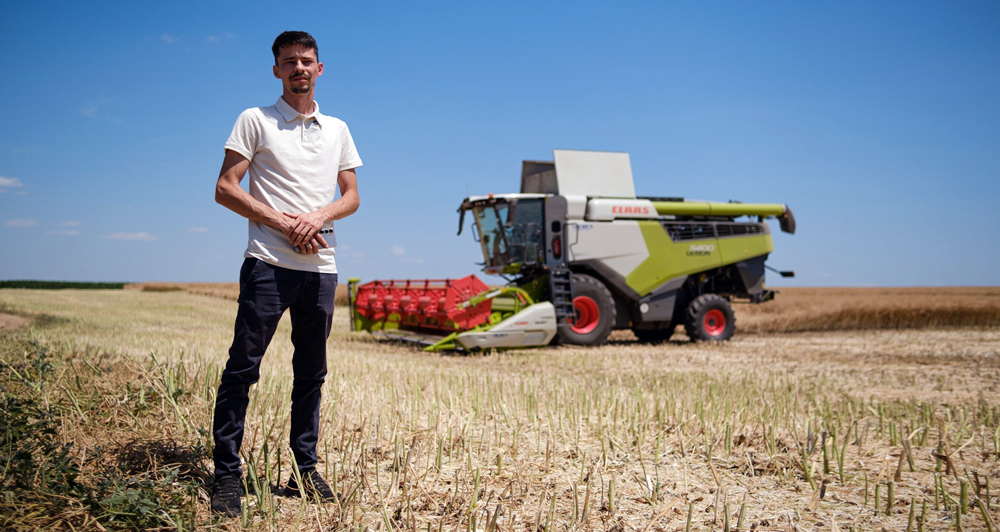Who we are
Overview: about the EBRDWho we are
Overview: about the EBRD
Our story
Learn about the EBRD's journey to investing more than €220 billion in over 7,800 projects.
- Our background and history
- Our organisation
- Our values
- Strategies, governance and compliance
- Project accountability
What we do
Overview: how the EBRD operatesWhat we do
Overview: how the EBRD operates
How we deliver systemic impact
Across three continents, the EBRD supports the transition to successful market economies.
- Where we work
- Products and services
- Sectors we work in
- Our projects
- Focus areas and initiatives
- Economic research
Work with us
Overview: how you can work with the EBRDWork with us
Overview: how you can work with the EBRD
What we offer for businesses
We draw on three decades of regional knowledge and financial expertise to tailor our products and approaches to each client's needs.
- Businesses
- Investors
- Donors
- Researchers
- Civil Society
- Alumni
- Nominee Directors
- Trade finance
- Careers
How a Serbian family farm is growing greener thanks to EBRD and EU support
Author: Bojana Vlajcic

The Kovačev family is optimising harvests by using new energy-efficient equipment
In the flat, fertile land of northern Serbia, Novi Kozjak looks like a town stuck in the past. What was once a rich settlement is today a rural community of around 600 residents, living among fields that stretch into the horizon. Many families have left for jobs in bigger cities, but the Kovačev family has stayed – and is thriving on its agricultural roots.
The Kovačevs have worked in agriculture for generations. Their story began like many others in the region: with a grandfather, a tractor and a few acres of soil. But today, the family farm has transformed into a successful agribusiness named Ferdinland, employing nearly 20 locals and embracing modern, energy-efficient farming practices.
Specialising in cultivating wheat, corn, sunflowers and rapeseed – as well as in the associated trade and logistics for these products – Ferdinland sells its goods to larger commodity companies for export.
Pride and progress
At the helm of the company are two grandsons of its founder, Nikola and his brother Milan, who are driving the family’s legacy forward – not by leaving for better-paying jobs in one of Serbia’s big cities, but by staying, investing and modernising.
“Every year, we try to reinvest part of our profits into equipment and land,” says Nikola Kovačev while standing beside his family’s latest purchase, a sleek, high-tech combine harvester, gleaming in the sun. “We’re proud to carry on the family tradition, and even prouder that we’re expanding rather than walking away from it.”
This important investment was made possible through the European Bank for Reconstruction and Development (EBRD) and European Union (EU)-supported SME Go Green Programme, which helps small and medium-sized enterprises access financing to buy green, energy-efficient technologies. The Kovačevs purchased their new combine harvester with financing obtained from OTP Leasing Srbija, one of the EBRD’s partner financial institutions within the programme, and the move has already paid off.
“It’s been a year since we bought it and it’s made a huge difference,” Nikola explains. “We’ve drastically improved our productivity, and during our short harvest season we are now able to collect more crops than before. We’ve also reduced operational costs as the new combine uses around 30 per cent less fuel, and the working conditions are much safer and more comfortable for our combine operators.”
The upgrade also came with a bonus: a 15 per cent cashback incentive, financed by the EU, which the family used to buy additional equipment for the combine harvester.
Adapting to a changing world
Efficiency is not just about speed, it’s also about adaptability and focusing on what you can do in given circumstances. With unpredictable weather and tighter harvesting windows caused by the effects of climate change, the Kovačevs are concentrating on what they can control: planning, readiness and smart investment.
“In farming, we can’t control the weather,” Nikola says. “But we can control how we prepare for those challenges. That means having the right tools and logistics in place to make the most of every opportunity.”
As a former economics student, Nikola brings a unique perspective to the family farm, and he now blends his academic insights with the hands-on experience he gained during his school summer holidays helping his grandparents in the fields.
“If you want to work in agriculture, you have to love it,” he says. “As a student, I did consider choosing various alternative careers, but I soon realised that building on our family’s work is a much better option. For me, it’s not just a job, it’s who we are. Continuing what my grandparents started feels natural. And now we’re making it even better.”
As the new combine cruises through the fields of Novi Kozjak, the Kovačev farm stands as a quiet testament to what’s possible when tradition and technology meet. With the right vision, determination and smart investments, this family is a great example of how a once small family farm can grow into a successful and profitable agribusiness.
